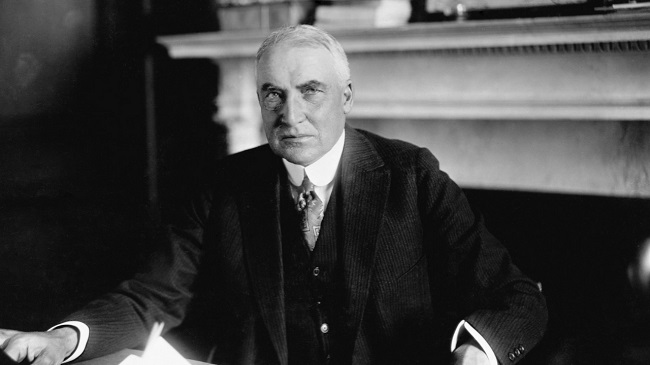As in, “I am not fit for this office and should never have been here,” whose president said this?
The Warren G. Harding
Which president famously declared, “I am not fit for this post and should never have been here?” Then Warren G. Harding is without a doubt the one to answer that question (1865-1923). In this piece, I’d want to share with you some interesting and perhaps unknown information about Warren Harding.

Though his time as president was brief, he nevertheless managed to live an interesting life. From March 4, 1921, until August 2, 1923, he served as the 29th president of the United States. After serving as president for just two years, he suddenly collapsed and died of a heart attack.
In 1924, then-Vice President Calvin Coolidge won the presidency. We need to find out more about him to determine whether there is anything else worth knowing.
Read Also:
- Do We Have School On Inauguration Day
- China And Russia Are Giving Authoritarianism A Bad Name
- Romulus Mayor Leroy Burcroff Democrat Or Republican
Interesting Warren G. Harding Information That the General Public Is Probably Ignorant Of.
1 : He worked as a journalist before entering politics.
He was born into a farming family on November 2, 1865, in Blooming Grove, Ohio. Among his parents’ eight children, he was the oldest.
Even though he had roots in farming, he had an enthusiasm for writing and journalism. While attending college, he worked for several newspapers, including the Democratic Marion Mirror, which stood in stark contrast to the Republican Marion County News.
The situation became more intriguing when the Marion Daily Star, a competitor daily, became available for purchase. As soon as his friends financed its purchase, Harding took to the track. To him, it seemed like a natural fit to combine his skills and passions in that way.
He had already achieved notoriety thanks to his skill as a journalist. His profile began to rise in the political arenas of both his home state and the nation at large. He continued to oversee the paper even after becoming president, all the way up to his untimely death in 1923.
2 : The Aggressive Harding Were Often
Harding’s reputation as a politician with a steady demeanour should not be mistaken for weakness. If you spend your time in politics or journalism, you’re probably used to being the victim of attacks on a personal level from opponents and detractors.
During his time as Star’s editor, he was frequently the object of attacks from the Independent’s chief writer. At some point, he had to stop attacking. If he continued to abuse him, he threatened to “mop up the street” with him.
3 : Finally, a Compromise led to Harding’s Nomination.
He was elected to the Ohio State Senate in 1899 before serving as the state’s lieutenant governor from 1904 to 1906. He served in the Senate from 1915 to 1921.
He was well-liked by voters and other party members in politics, but his nomination was the result of negotiations.
There was confusion within the Republican Party about who should be nominated. Both the popular vote and the Electoral College vote were decisive, with him and his running mate Coolidge defeating James Cox by large margins.
His triumph is often cited as an example of the biggest margin of victory in a popular vote since the 1820s.
4 : A Number of Famous People Supported Harding During His Campaign for Office
Today, celebrity endorsements of political candidates are commonplace, but Harding may be the first president to have received such support.
Legendary 1920s singer Al Jolson endorsed his candidacy. He himself as a Republican and said he would swing by Marion, Ohio.
Harding would give campaign rallies from his front porch and march with supporters down the street. Mary Pickford and Douglas Fairbanks, among others, were among those who backed him.
5 : His Administration Was Linked to a Prominent Scandal
While Harding himself was never charged, many members of his administration were. His Interior Secretary, Albert Fall, was embroiled in the Teapot Dome Scandal for his role in which he leased public land to oil companies in exchange for various ‘gifts.’
Likewise, the scandal led to his incarceration. Meanwhile, Attorney General Harry Daugherty was convicted of illegally selling liquor permits during Prohibition.
Read Also:
- When Will We Know Who Won The Election
- Biden Healthcare Would Be An Insult To My Dead Son
- Republicans Have Only Themselves To Blame For Madison Cawthorn
Conclusion
The president’s famous line, “I am not suitable for this office and should never have been here,” should hopefully have convinced you of that.
Harding had an interesting life despite his brief presidency and unexpected exit. Please share any more information you may have about him in the comments. Please subscribe to our feed if you find such intriguing material appealing.


